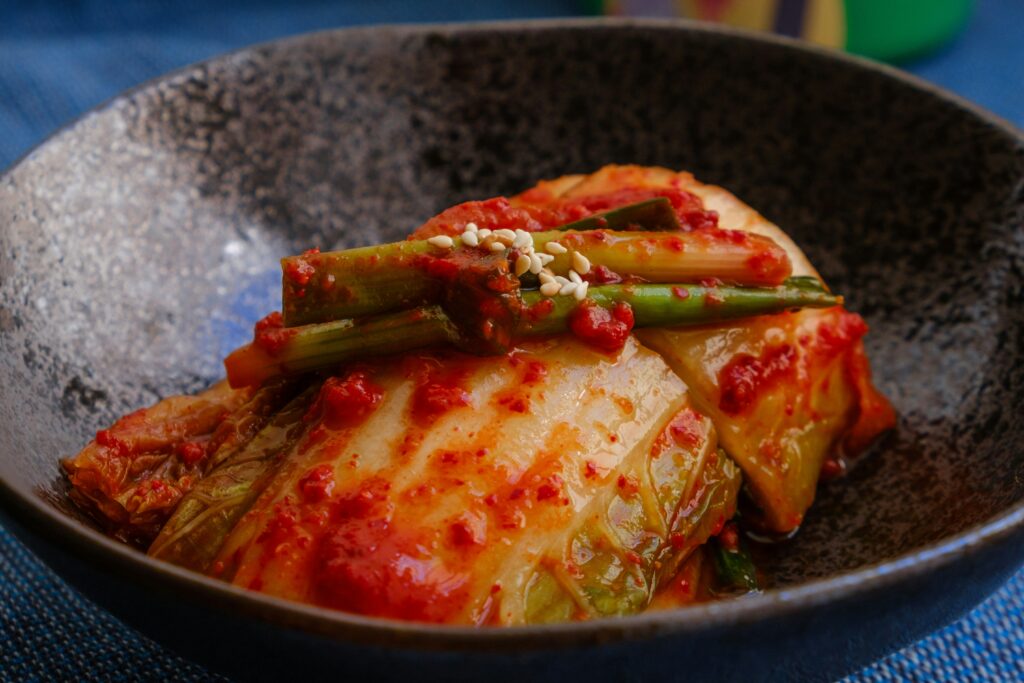Gut Health and Endurance: The Digestive System’s Role in Athletic Performance

The gut microbiome is a complex part of the human body. We are just barely starting to understand a fraction of what happens there, and how it impacts our overall physical and mental health in various ways. A number of research studies have started to investigate the relationship between gut health and athleticism. While most studies don’t provide definitive results or guidance, there is a lot of promise in this area of research. Beyond that, working on your own gut health is never a bad idea as an endurance athlete.
The Relationship Between Gut Health & Endurance
When studying the differences between the gut microbiomes of athletes compared to sedentary individuals, there are distinct differences. Moderate exercise promotes healthy gut bacteria, less inflammation, and regular bowel movements than in sedentary individuals. As exercise intensity and duration increases, however, athletes tend to complain of an increase in gastrointestinal issues during and after exercise.
Athletes who compete in different sport-types tend to have varying levels of specific bacteria strains in their gut. Weight lifters have different gut bacteria than a long distance runner. To some extent, this suggests, the type of exercise an individual participates in will impact their gut composition. This relationship between gut composition and sport goes both ways, with some research suggesting that baseline microbiome composition may be predictive of exercise gains over a few-week time period.
Will Improving My Gut Health Improve My Athletic Performance?
Performance improvements can be tricky to measure, but it does seem that certain factors that influence performance outcomes can be greatly influenced by an improved gut microbiome. One example of this relates to the tendency for gut issues to occur when intensity and duration of exercise increases dramatically. This is typically caused by a redistribution of blood during intense exercise. When blood flow is diverted away from the gut, issues such as nausea, vomiting, and diarrhea are more likely to occur. In some mice studies, mice that were treated with specific probiotics no longer had gut issues related to blood flow redistribution. This effect was also seen in a small study with elite cyclists. Adding probiotics to an athlete’s fueling protocol in the days and weeks leading up to the race may be an additional strategy to use in order to decrease unwanted gut issues.
A few specific bacteria strains (Lactiplantibacillus plantarum) from fermented cabbage have been related to specific increases in strength and endurance in animal studies. Veillonella atypica, a bacteria found in high concentrations in fecal samples of marathon runners improved treadmill performance more than a lactobacillus control. There were a number of confounding factors in these studies that makes it difficult to definitively determine whether or not v. atypica was the cause of the improved treadmill performance, but it provides a base to say that specific gut bacteria has the potential to be used as a beneficial aid to an athlete’s performance.
Fueling Performance: How the Gut Controls Energy Production
More generally, the gut is where the carbs, fats, and proteins are absorbed and used by the body. In other words, the gut controls energy production. The more efficient our body is at utilizing the energy we give it, the better we will be able to perform. Maintaining a healthy gut bacteria composition, and training our gut to digest and absorb the nutrition we need it to handle on race day are helpful strategies in this regard.
Additionally, the gut microbiome is thought to impact skeletal muscle turnover and maintenance. This would not only improve performance for a strength-based athlete, but aid in recovery from hard efforts where muscle is broken down after hard bouts of endurance training as well. Rates of upper respiratory tract infections are also decreased in athletes who supplement with probiotics. Both of these points add to an athlete’s ability to consistently train, thus improving performance through improved training and recovery.
ADVERTISEMENT – Use Code RTMAG24 To Save 20% Off Your Order

How To Improve Gut Bacteria Composition
Improving your own gut bacteria composition can be a relatively simple process. There are three main kinds of bacteria we need to focus on in order to improve gut health. The first are probiotics, or beneficial bacteria, found in foods and supplements. The next are prebiotics, or nondigestible food ingredients (typically fibers) that help the beneficial bacteria grow. Synbiotics are supplements that include both pre and probiotics that work together to improve gut health.
Examples of probiotic-rich foods include yogurt, kimchi, kombucha, sauerkraut, miso, pickled vegetables, raw unfiltered apple cider vinegar, and water or milk kefirs. Try making a yogurt parfait with berries and granola. Other choices include topping a barbequed pork sausage with kimchi and a side of roasted potatoes and brussels sprouts, or using milk kefir in your post-run smoothie.
Prebiotics are typically found in fibrous foods such as fruits, vegetables, beans, and whole-grains. Incorporating these into your diet more regularly can be helpful. Try adding a variety of whole grains into your diet by using brown rice, polenta, or barely. Include at least one fruit or vegetable to each meal or snack each day. Toss dressings, sauces, or dips with raw garlic and onion. Substitute half the meat for black or pinto beans for an added fiber boost to soups or burrito bowls.
Some athletes may choose to rely on supplements that may include both probiotics and prebiotics to improve gut health. Choose a supplement company that is third party tested and look for a supplement that contains a variety of probiotic strains for best results.
Conclusion
Promising research suggests that improving your gut health as an endurance athlete will provide more positive outcomes than any potential negative or neutral outcomes. Improving your gut microbiome has the potential to reduce gastrointestinal distress during long and hard efforts. It can also improve strength and endurance, and improve overall consistency in training through enhanced recovery and less upper respiratory tract infections. Working to improve your own gut bacteria composition can be achieved by including more pre and probiotic-rich foods in your diet, as well as including a probiotic supplement in your routine.
References
O’Brien MT, O’Sullivan O, Claesson MJ, Cotter PD. The Athlete Gut Microbiome and its Relevance to Health and Performance: A Review. Sports Med. 2022 Dec;52(Suppl 1):119-128. doi: 10.1007/s40279-022-01785-x. Epub 2022 Nov 18. PMID: 36396898; PMCID: PMC9734205.
Bycura D, Santos AC, Shiffer A, Kyman S, Winfree K, Sutliffe J, Pearson T, Sonderegger D, Cope E, Caporaso JG. Impact of Different Exercise Modalities on the Human Gut Microbiome. Sports (Basel). 2021 Jan 21;9(2):14. doi: 10.3390/sports9020014. PMID: 33494210; PMCID: PMC7909775.
Schreiber C, Tamir S, Golan R, Weinstein A, Weinstein Y. The effect of probiotic supplementation on performance, inflammatory markers and gastro-intestinal symptoms in elite road cyclists. J Int Soc Sports Nutr. 2021 May 17;18(1):36. doi: 10.1186/s12970-021-00432-6. PMID: 34001168; PMCID: PMC8127283.
Sorrenti V, Fortinguerra S, Caudullo G, Buriani A. Deciphering the Role of Polyphenols in Sports Performance: From Nutritional Genomics to the Gut Microbiota toward Phytonutritional Epigenomics. Nutrients. 2020 Apr 29;12(5):1265. doi: 10.3390/nu12051265. PMID: 32365576; PMCID: PMC7281972.
National Institutes of Health. Probiotics: Fact Sheet for Health Professionals. Updated Nov 3, 2023. https://ods.od.nih.gov/factsheets/Probiotics-HealthProfessional/
ADVERTISEMENT

Jackie Hendrickson RD, MPH is a registered dietitian with a Masters Degree in public health nutrition from Utah State University. Jackie is the owner of Enduura Nutrition and loves coaching her athletes to their athletic potential through sustainable training & nutrition principles. She is an avid road & trail marathoner with a background in collegiate track, cross country, and competitive swimming. Jackie and her husband, Adam, were teammates in college and continue to pursue their running goals together. They live in beautiful Ogden, Utah with their 2 year old son, Lincoln.




